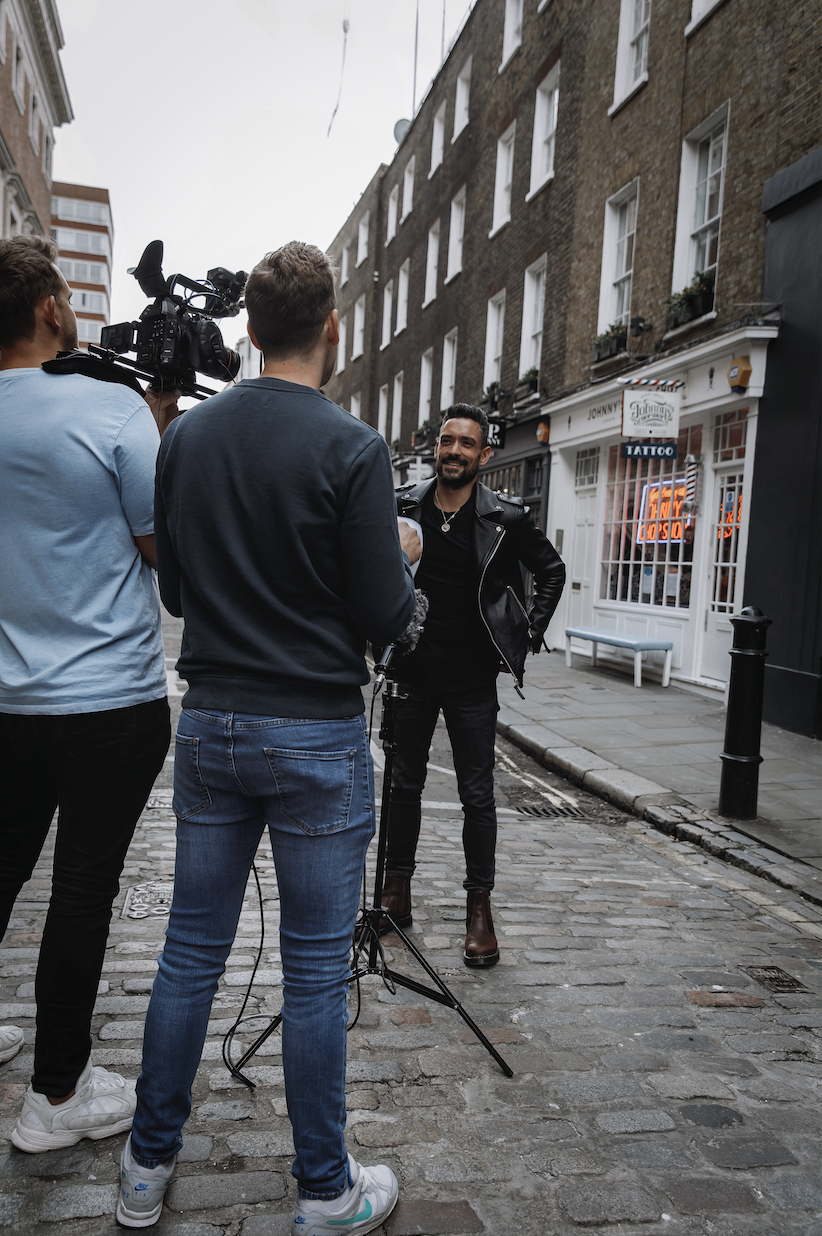SOCIAL MEDIA FRAUD | ARE WE SHARING TOO MUCH INFORMATION ONLINE?

Why are we so keen to giveaway all our information online? It baffles me! The amount of influencers I see doing the unboxing stories with their addresses on the package for the world to see. I warned a friend that it's not prudent to giveaway that amount of personal information on social media. His reply was, 'yeah but if brands are watching then they'll have an idea on where to send free stuff.' This just shows the gap of awareness that exists.
Truth is, what might seem as flippant titbits of personal information can be weaponised by fraudsters and scam artists who could be looking to build a profile of you and steal your identity. Do you know what information can be used against you by third parties? Don't worry you're not alone.
Nearly one in three (30%) Brits are not sure whether they have shared information on social media that could make them a victim of fraud but also admit to sharing details like their birth date, location and pet’s name.
That’s why Lloyds Bank has partnered with iconic London barbershop, Johnny’s Chop Shop, to raise awareness of potential fraud risks from social media, after research reveals how Brits are exposing themselves to scams from the amount of personal information they share online.
Truth is we are sharing far too much information, leaving ourselves wide open for attack. But are we savvy enough to spot when we're being scammed?
Recent research from Lloyds Bank showed that the majority (81%) of Brits feel confident in their ability to spot the signs of a scam. And men are the most confident – 85% compared to 78% of women – think that they can spot a sign of scam. However, a quarter share too much information on social media and a third have no idea who sees their posts. That leaves one question, what can I do to help prevent identity theft and being scammed?
I took a trip down to Johnny’s Chop Shop. Unbeknownst to me, my social media had already been scouted out by the team as part of a social experiment with the aforementioned Lloyds Bank. They asked me some simple questions like how is Charlie? Which is pretty par for the course. Charlie gets his own fan mail at my home.
But what if Charlie could be part of a password or a security question for my online banking? People that have followed my Instagram for a while will remember my old handle contained my Mother’s Maiden name. Another gift for scam artists.
I have to admit I've been guilty of a slight bit of arrogance in this area too. When I was very green to social media I took to Facebook to vent some frustration about receiving a speeding fine in the post. By posting an image of the fine I was giving away my vehicle registration, my address, pretty much everything.
(Don't worry I'm a little bit more careful these days. One can only dream of getting a speeding fine in London with the average speed for a motorist being 4mph).
Be careful what you say and do on social media. This includes showing off that new engagement ring that your boyfriend has just bought you. Your date of birth is most likely very easy to find on your timeline, it's more than likely that you've used that as part of a pin or password somewhere.
Do you send Newsletters? So by law with the likes of MailChimp you have to give a land address. That has to be readily available for people to see in each email you send in every campaign. A good way to circumvent this is either don't do newsletters or register a separate mailbox with the post office of FedEx.
Don't be lured into any conversations over the phone that will be asking you to give over sensitive information. They will most likely try and scare you into action by saying that the Queens Government has opened a case on a tax fraud with your name and if you don't 'press 1' now then you will be sent a summons. It's not the way Her Majesty's Government works. Simply hang up and log in to your HMRC account to see if you've been notified.
If there's any doubt there's no doubt! An old adage passed down to me. If you're unsure if you're giving away too much information online or over the phone then simply hang up or delete a post. If it's your mobile phone company calling asking for some identification to make sure they're talking to the account holder, just hang up. Call them back on your own terms.
Here's a scary fact: Over a quarter (29%) say that even if their social accounts were susceptible to fraud, people believe that it just ‘won’t happen to them’. It WILL happen to you if you're not careful. The scam artists are getting smarter and more calculated by the day so please take heed.
One final thought from myself about why I’ve got involved in this campaign and why I share in Lloyds Bank’s passion for raising awareness on this subject. Firstly, I wanted to try to break the taboo of talking about subjects such as this, it shouldn’t make us feel embarrassment or ashamed of falling for a scam – in fact we can use the experience to help others. We need to talk about it and raise the conversation with our friends and family. Although, I personally know how hard it is to open up and talk. I’m a guy who struggles to show emotion, who struggles to share information with people closest to me. I feel that in the same way that men tend to bottle up their mental health we also bottle up tough conversations and I’m here to hopefully give you the confidence to talk, that is it; just talk.
As part of Lloyds Bank’s ongoing commitment to identify and protect against fraud, the bank is urging people to take a closer look at their privacy settings and see what personal information they may be unknowingly sharing with people they don’t know to protect themselves.
LISTEN TO THIS PODCAST: Paul Davis the Retail Fraud Director at Lloyds Bank
Founder of this eponymous blog, focusing on men's fashion & lifestyle.









